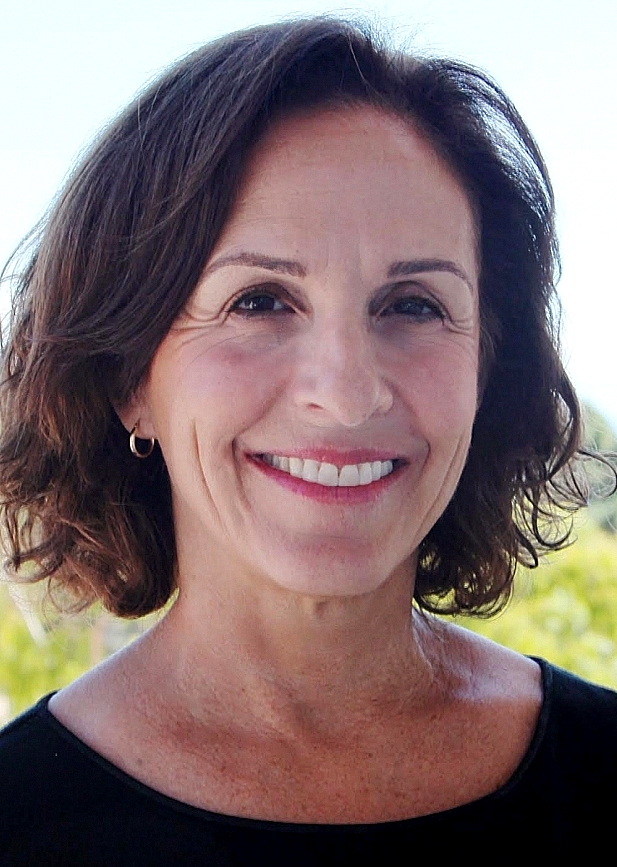
‘A Space of Freedom’

They read Yusef Komunyakaa, Jack London, Sandra Cisneros, Greek mythology, exploring the human condition by way of literature. Then they do some writing of their own. Along with their assigned essays often come notes for their instructors — messages of appreciation, of new perspectives and of the brighter horizons revealed through reading.
I don’t know how to tell you what it feels like to know that you are listening to our voices … to feel that we’re not invisible, that we’re not forgotten.
I’m connecting with other men here about what I’m reading. I’m talking to my family about my reading. I’m talking to my daughter about what she’s reading in school.
“When you get letters like that — there is no better example of how relevant literature is,” said Susan Derwin, a professor of comparative literature at UC Santa Barbara and director of the campus’s Interdisciplinary Humanities Center (IHC). “We talk a lot about the value of reading, of using the imagination, of having that inner realm, which they have called a real space of freedom. And they’ve said it makes them better citizens on the inside.”
The inside is Kern Valley State Prison and California Men’s Colony, where Derwin, through the IHC, runs a unique correspondence course for incarcerated individuals. She started “Foundations in the Humanities” in 2015, after receiving an inquiry from a prisoner who was once a UC student.
“This came at a time when we had begun to really think seriously about the role of the public university in working toward the social wellbeing of the broadest community,” Derwin said. “How should the university help serve its communities through education? This was an opportunity for us to think about that and act on it.”
Modeling the course after a life-skills program run by the Los Angeles Archdiocese — Sister Mary Sean Hodges, the director of that effort, is now a partner with IHC — Derwin launched at Kern Valley, with few expectations. She was blown away. Hoping to get 10 men for the inaugural cohort, 64 applied.
“We accepted them all and expanded our graduate student pool to work with them — and 48 of them completed the course,” Derwin said. “After the first course was finished there immediately came requests for more, so we started ‘Foundations in the Humanities 2,’ focused on American literature. We are building more courses and there are other faculty interested in being involved.”
This growing focus for the humanities, and for universities more broadly, is the subject of an upcoming symposium at UCSB, “Humanities in Prison,” on April 26. Beginning at 9 a.m. in the McCune Conference Room, 6020 Humanities and Social Sciences Building, the daylong event is free and open to the public.
The gathering convenes educators and formerly incarcerated individuals alike to share experiences and explore the building of intellectual communities across systemic divides via the humanities. It also will reflect on the opportunities and obligations of the university community “to other students in the broader world in our state,” Derwin said.
“How can we recognize what a privilege it is to have these tools that we can make available to others?” she asked. “That is how I see the humanities — as tools for living well, for living in community, for living with oneself.”
Michael Morgan, a professor of theater arts at UCSB, works with youth offenders through his highly regarded summer initiative, The Odyssey Project. He, too, considers the humanities a valuable means of reflection, even reinvention, for this population.
“That can be particularly meaningful and therapeutic to incarcerated youth who stand at a crossroads between a traumatic past and a future that could hold more light,” said Morgan, who will present at the symposium. “The way of the artist is centered on choice-making. By putting themselves in this position of power, incarcerated youth often exercise alternative ways of participating in the world. These exercises may not yield immediate, dramatic change but glimpses of possibility can sometime offset narratives of oppression and hopelessness.”
That same possibility is at the heart of Derwin’s correspondence course, a rarity among four-year institutions.
“There are excellent on-site programs in California that enable participants to earn AA degrees, but to my knowledge there is no correspondence program like this,” Derwin said. “We have heard from some participants that because of this class they have gotten involved in the community college programs. The UC is helping to bring this population into the community colleges. Some of them who are looking at the possibility of parole in their near future want to eventually try to come to UCSB.”
The prisoners do not earn grades or university credits for the correspondence course, but they do receive a certificate of completion, recognized by the prison administration, that is added to their central file and taken into consideration during parole board hearings.
Aside from Derwin’s periodic in-person work sessions with the students, the course is handled entirely via mail by IHC graduate teaching fellows who provide the men detailed written responses to their essays — feedback to consider and apply to future assignments.
Doctoral candidate Adam Morrison was drawn to apply for a teaching fellowship on the course by the chance “to work with a non-traditional and underserved student community outside the bounds of a university classroom.”
“We are all better served when we are able to extend our teaching and research to new and diverse communities and to include their voices and experiences in the conversation,” he said. “It has been an incredibly engaging experience, and one that has challenged me to really think about the way I engage my students. Without the benefit of face-to-face interaction, I have had to think about how I can meet students in a text.”
Fellow instructor and graduate student Nicole Dib concurred.
“We’re in a unique situation to be able to correspond with these students,” said Dib, who embraced the opportunity to fuse her interests in abolition work, research and teaching. “I firmly believe that research in the humanities shapes our world, and that literature in particular builds the world around us and helps us see connections between social forces and identities more clearly and with more urgency. To that end, this course teaches everyone involved about new parts of our world.”
Centered on a married couple who are the only ones in their town to welcome two wandering peasants (actually Greek gods in disguise) seeking food and a bed for the night, the Greek myth of Baucis and Philemon explores notions of hospitality, gratitude and sacrifice. The tale is among the required reading in Derwin’s course, as is London’s “To Build a Fire,” which speaks to the power of imagination and Cisneros’s visceral story about a girl reliving the memories of her dying aunt.
Every story read and essay written, Derwin said, presents these unique students that opportunity for reflection — and a window into new possibilities.
“Don’t we read to learn to be with ourselves in the best way? Selves we don’t even know exist?” she asked. “These men are discovering parts of themselves. They are that little girl alone in an apartment. They’re that Greek hero who has flown too close to the sun. They’re everything and they’re seeing that they’re many things. It’s teaching at its best, it’s humanities at its best.”



